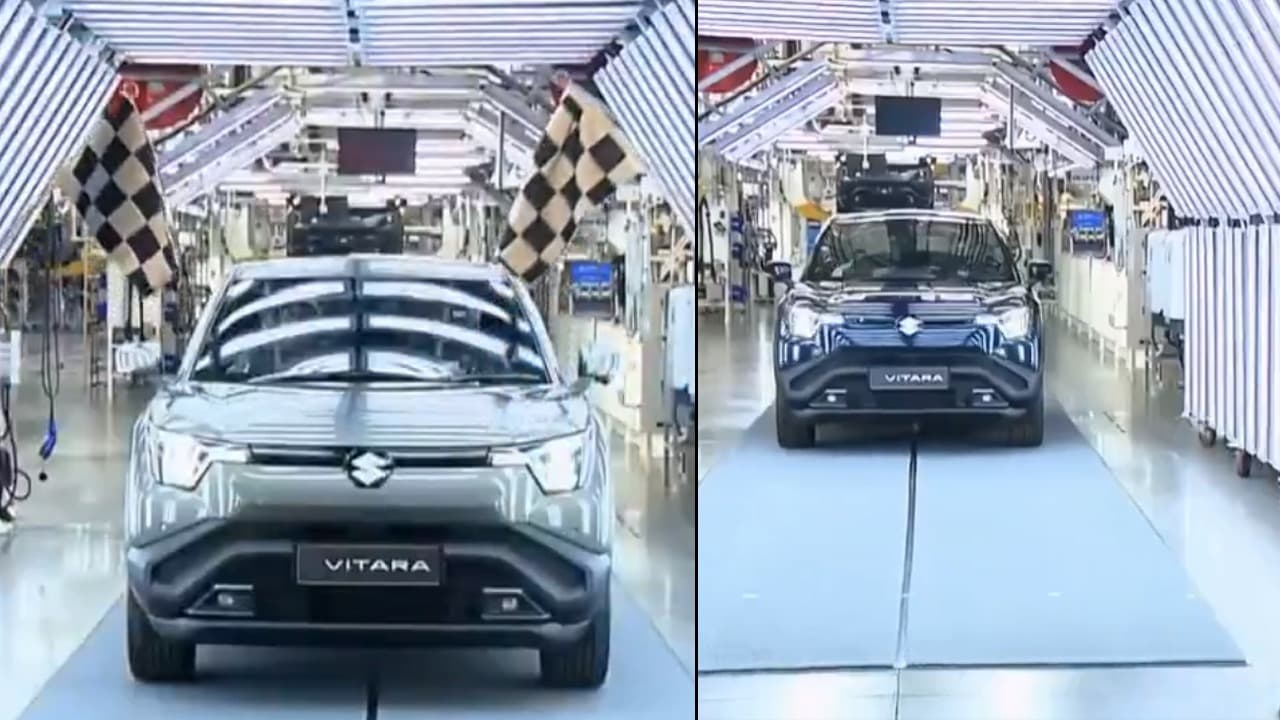Maruti Suzuki has commenced production of its first electric vehicle, the e-Vitara, at its Gujarat plant. The e-Vitara, built on a dedicated EV platform, will be exported to over 100 countries, starting with the UK and Europe.
The largest automobile manufacturer in the nation, Maruti Suzuki, has finally started manufacturing the e-Vitara, its first electric vehicle, at its Hansalpur plant in Gujarat. In addition to being manufactured in Hansalpur for local use, the e-Vitara will also be sold to more than 100 nations worldwide. These BEVs will initially be exported to the United Kingdom first, followed by other markets in Europe.
While the company has not specified how much percentage of these cars will be exported, it has said that a majority of the production will be earmarked for exports. Suzuki has invested Rs 21,000 crore in its Hansalpur plant, which has an annual production capacity of 7.50 lakh units.
What Can You Expect From E-Vitara?
Late last year, the e-Vitara had its international debut in Europe. It was also displayed in India during the Bharat Mobility Show 2025. It is built on the 40PL dedicated EV platform, which was developed in partnership with Toyota, who will also manufacture the Urban Cruiser EV, a Toyota variant.
E-Vitara will be offered with 18-inch aero-optimised alloys wrapped in Goodyear tyres. The car comes with two battery types – 49 kWh and 61 kWh. The 49 kWh pack will take about 6.5 hours on a 7 kW AC charger and 4.5 hours on an 11 kW charger. The bigger battery will be offered in a dual-motor AWD (AllGrip-e) configuration. Both units supports DC fast charging, allowing users to achieve 80 per cent charge on their vehicles in nearly 45 minutes.
In the near future, information on the features, variants, and the Indian launch schedule should be made public.
The estimated ex-showroom starting price of the electrified SUV is around Rs 20 lakh. It will compete with rival models like the Hyundai Creta Electric, MG ZS EV, Mahindra BE6, and others once it is released. Indian customers can expect to get their hands on the e Vitara by September 3.
Next, PM Modi is scheduled to launch the TDS Li-Ion Battery Gujarat (TDSG) facility in Hansalpur, which will produce Li-ion battery cells and electrodes for powerful hybrid automobiles. It is a joint venture between Suzuki, Denso, and Toshiba.
PM Modi also emphasised advancements in fortifying the battery production ecosystem in conjunction with the introduction of the EV. “Production of hybrid battery electrodes will also begin at a plant in Gujarat, which will greatly enhance our battery ecosystem,” he continued. The dual statement, according to industry analysts, highlights India’s commitment on growing its EV footprint while producing essential components domestically to lessen reliance on imports.
